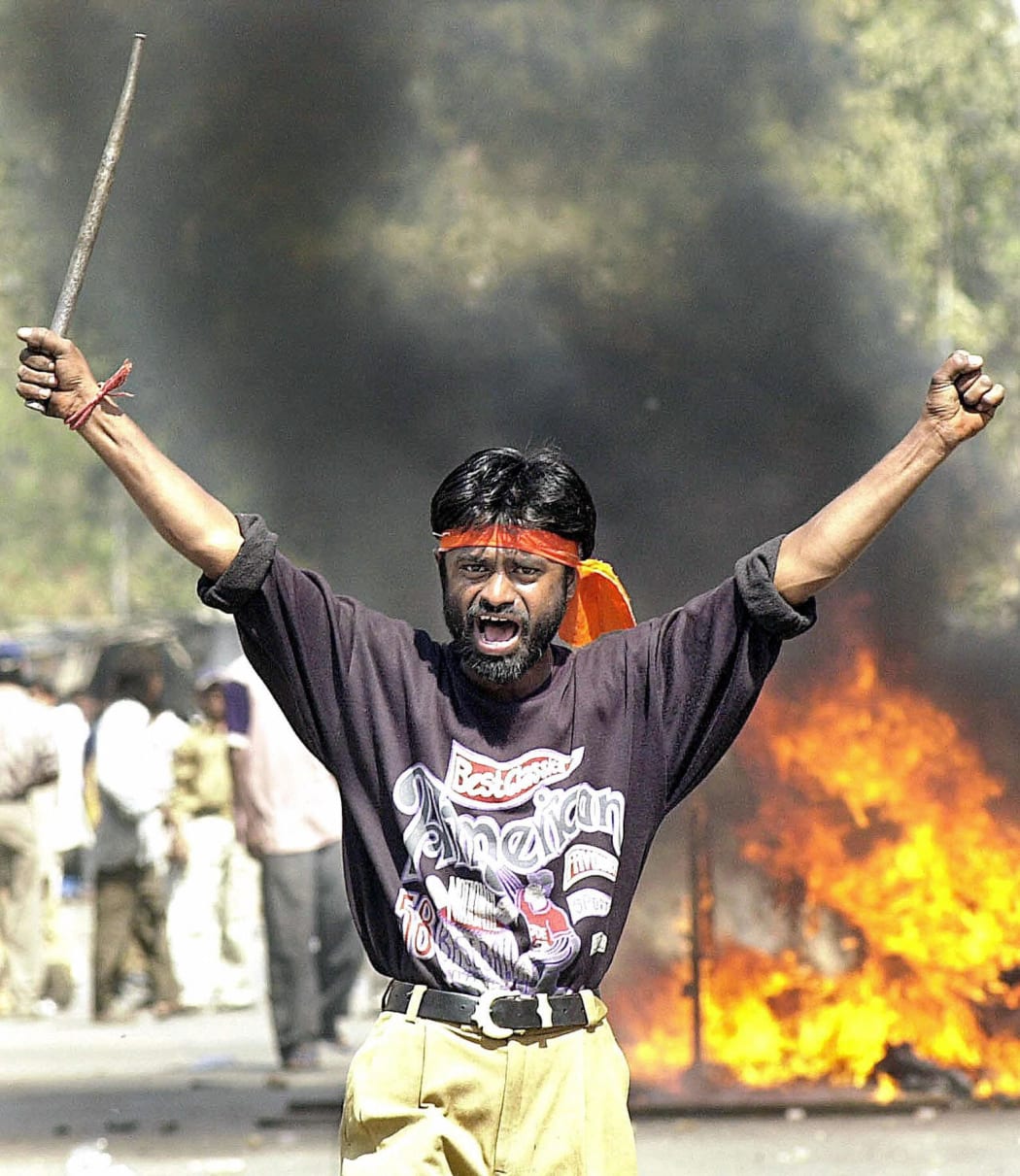A court in India has found 24 people guilty of involvement in one of the most notorious massacres during the 2002 anti-Muslim riots in Gujarat.
The special court acquitted 36 others in the so-called Gulbarg Society killings in Ahmedabad city.
A mob attacked the complex, hacking and burning 69 people to death.

This file photograph taken in 2002 shows an Indian Bajranj Dal activist armed with a iron stick shouting slogans against Muslims. Photo: AFP
The riots were some of the worst since Indian independence. More than 1000 people, mostly Muslims, died after a train fire killed 60 Hindu pilgrims.
Muslims were blamed for starting the train fire, and Hindu mobs eager for revenge went on the rampage through Muslim neighbourhoods in towns and villages across Gujarat during three days of violence that followed.
Critics of Prime Minister Narendra Modi, who was the state chief minister at the time, say he did little to stop the riots.
The Gulbarg residential complex in Ahmedabad was one of the targets where many Muslims were burnt to death and their properties set on fire.
On Thursday, 11 people were convicted of murder in connection with the attack, while the others were found guilty of lesser charges.
Among those convicted is a local leader of the hardline Hindu group Vishwa Hindu Parishad (VHP).
Sentencing is scheduled for Monday.
Judge PB Desai said there was no evidence that the attack was planned and dropped charges of criminal conspiracy against the accused.
Ehsan Jafri, a prominent Muslim politician and a former Congress party MP, was among those killed.
Survivors of the Gulbarg massacre say he fired his gun in self-defence as the mob attacked the complex.
Zakia Jafri, the MP's widow, says her husband called Mr Modi for help but it never came.
Mr Modi has always denied any wrongdoing and has not apologised for the riots. A Supreme Court panel also refused to prosecute him in 2013, citing insufficient evidence.
The violence was initially investigated by the Gujarat police and subsequently by an independent Special Investigation Team (SIT) appointed by the Supreme Court in 2008.
The Gulbarg massacre was among 10 key incidents in the riots being investigated by the SIT.
-BBC

